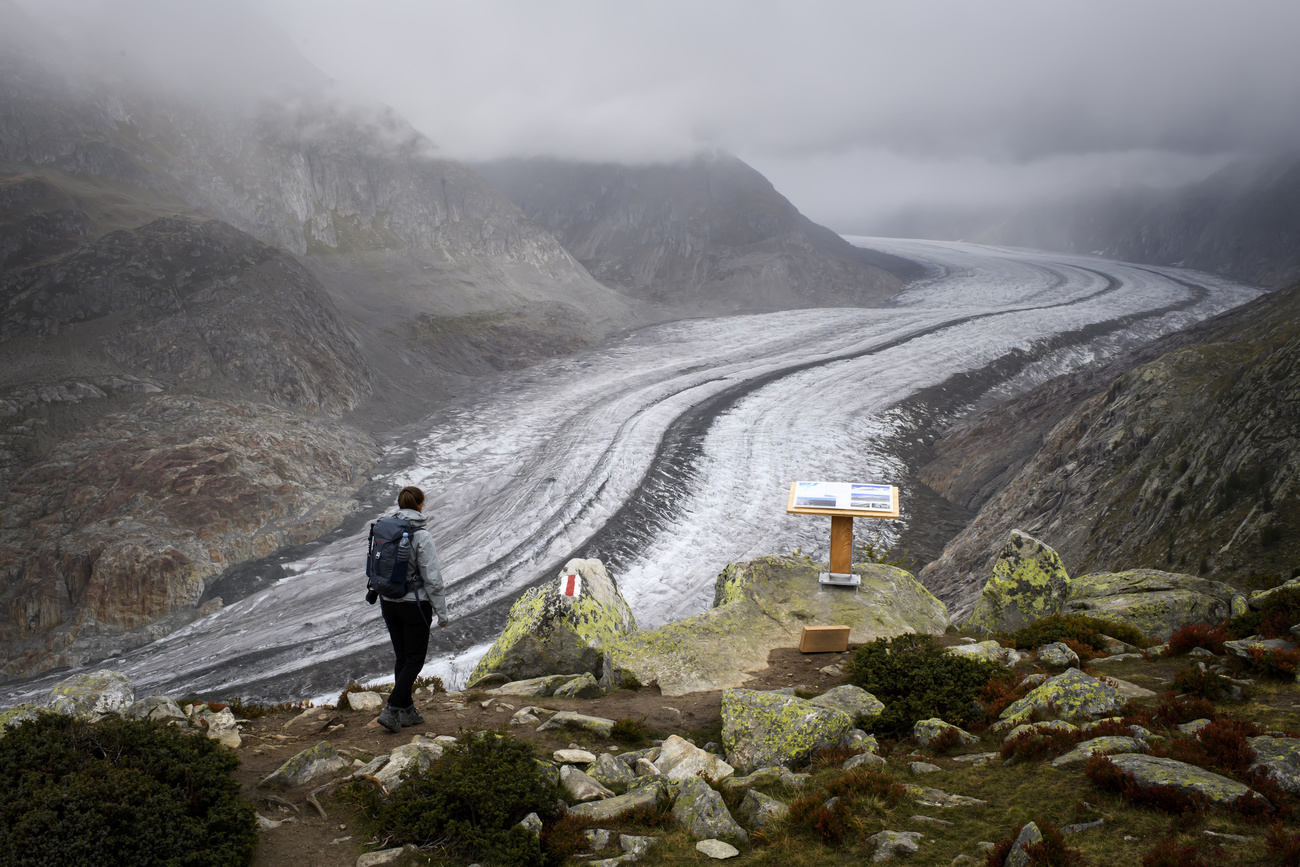
Permafrost temperatures in Swiss Alps reach record highs

The warming trend observed in permafrost over the last two decades continued in 2019-2020, the warmest hydrological year on record in Switzerland, the monitoring network PERMOS said on Thursday.
Scientists have now observed an increase in permafrost temperatures over the past 20 years at all sites where PERMOS has been measuring, the network said in a press release.
In 2019-2020 air temperatures were up to 1°C higher than average during the winter. This, combined with a very warm spring, two summer heat waves, and the early arrival of snow at high altitudes in November 2019, resulted in warm permafrost conditions across the country. The early onset of snow cover was a factor because it insulated the subsurface from cold winter weather conditions.
Ground temperatures measured near the surface in September 2020 were in some cases also at record highs, resulting in a thicker active layer – the uppermost part of the ground above the permafrost, which thaws in summer. The active layer on the Schilthorn mountain in canton Bern, for example, has more than doubled in thickness since measurements began in 1998.
Record-high permafrost temperatures were also seen at depth in several locations.
Permafrost is the term used to describe permanently frozen ground material. In Switzerland, it is found under about 5% of the country’s surface, typically under shady scree slopes and rock faces above an altitude of 2,500 metres.
Established in 2000, the Swiss Permafrost Monitoring Network PERMOS documents changes in permafrost conditions in the Swiss Alps and draws on the expertise of six research institutes and universities in the country.

In compliance with the JTI standards
More: SWI swissinfo.ch certified by the Journalism Trust Initiative






























You can find an overview of ongoing debates with our journalists here . Please join us!
If you want to start a conversation about a topic raised in this article or want to report factual errors, email us at english@swissinfo.ch.